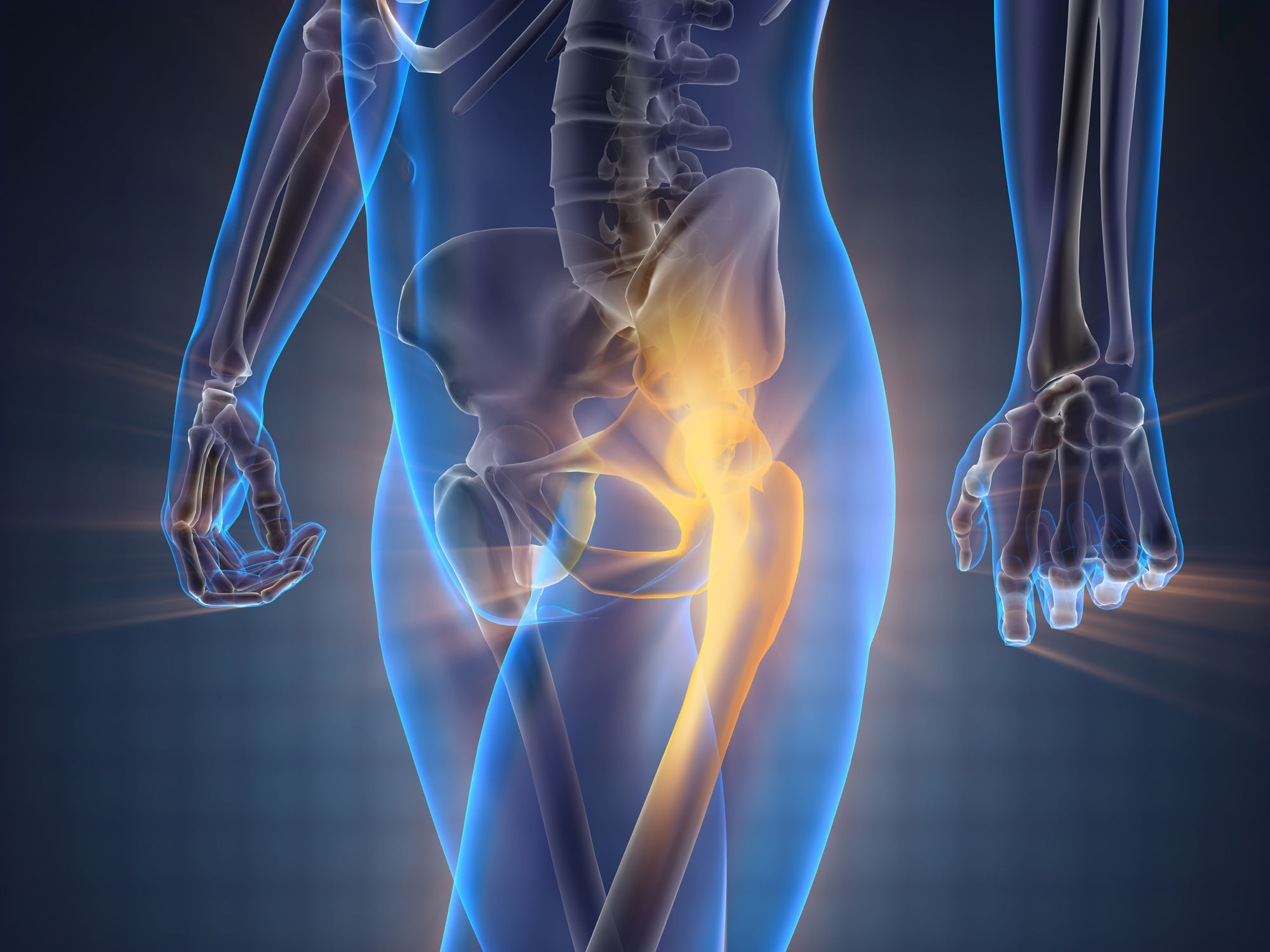Get Easy Health Digest™ in your inbox and don’t miss a thing when you subscribe today. Plus, get the free bonus report, Mother Nature’s Tips, Tricks and Remedies for Cholesterol, Blood Pressure & Blood Sugar as my way of saying welcome to the community!
The best diet for better bone density

Age-related bone loss. It happens to everyone to some degree or another.
But how badly it happens to you can mean the difference between living a stress-free, active life and living in constant fear of falls and bone fractures.
If you’re a post-menopausal woman, for example, you have a much higher risk of developing an extreme form of bone loss known as osteoporosis…
Osteoporosis is a progressive bone disease where your bones become increasingly weak, thin and brittle.
Whenever you hear about an older woman being hospitalized for a fractured hip, osteoporosis is usually the culprit. It’s also the culprit behind the shrinking stature and hunchback you see in a lot of older women.
But, truth be told, you don’t have to be an older woman to develop osteoporosis. It can happen if you’re young and/or a man too. Some factors that increase your risk of developing osteoporosis include:
- A family history of osteoporosis or broken bones
- Having broken a bone as an adult
- Smoking
- Excessive alcohol consumption
- Being sedentary
- Having a small, thin body frame
- Taking certain medications like steroids, hormonal contraceptives and proton pump inhibitors (PPIs)
- Calcium and vitamin D-deficiency
- Eating a poor diet
In fact, the last factor on the list plays a particularly important role in your bone density… or lack thereof.
To put it plainly, a poor diet will put you on the fast track to a bone fracture, while the right diet will keep your bones dense and strong all your life long…
Anti-inflammatory foods help your bones
According to the latest research, there’s one dietary tip you need to follow above all else to keep your bones strong and healthy…
Eat foods that fight inflammation.
Researchers from Ohio State University found that women who eat diets with more inflammation-fighting foods maintain their bone density better than their peers who eat more inflammation-provoking foods.
In their study, Ohio State researchers examined the dietary records of 160,191 women between the ages of 50 and 79. They assigned each woman an inflammation score based on the top 32 foods they’d been eating the three months before they enrolled in the study.
Researchers then examined bone density data from some of these women and fracture data from all of these women. And here’s what they found:
- Women who ate an anti-inflammatory diet lost less bone density over the course of six-years than women who ate an inflammatory diet.
- Post- menopausal Caucasian women under the age of 63 who ate an anti-inflammatory diet were 50 percent less likely to suffer a fracture than women in the same group who ate an inflammatory diet.
Of course, this isn’t the first time scientist have connected inflammation to bad bone health. Previous studies have shown that older men and women with higher inflammatory markers in their blood are more likely to lose bone density and suffer from fractures.
Foods that build bone density
Thanks to this latest study, you now know how to fend off the bone-density boogeyman that looms over you as you age—eat an anti-inflammatory diet. That means eating a diet that consists primarily of:
- Vegetables
- Fruit
- Whole grains
- Fish
- Grass-fed meat
- Nuts
- Legumes
- Inflammation-fighting spices like garlic, cayenne, cinnamon and ginger.
And don’t forget to add the top-five inflammation-fighting foods to your diet too.
Besides eating an anti-inflammatory diet you should also make sure you eat enough calcium-rich foods (like grass-fed dairy products, kale, sardines, broccoli and oranges), since your body needs calcium to maintain healthy bones. You may want to steer clear of calcium supplements though. They’ve been found to have some dangerous heart and brain side effects.
Vitamin D is important too when it comes to maintaining bone density. That’s because you need adequate vitamin D levels to absorb calcium efficiently. So make sure you get enough vitamin D from your diet, the sun, a supplement or a combination of all three.
And last but not least, make sure you get enough exercise too. It’s crucial to battling bone density loss and inflammation. And, lucky for you, all it takes is 20 minutes per day to keep inflammation levels low and — consequently — bone density high.
Sources:
-
“Osteoporosis: The Bone Thief.” National Institute on Aging. https://www.nia.nih.gov. Retrieved January 27, 2017.
-
“Osteoporosis fact sheet.” Womenshealth.gov. https://www.womenshealth.gov. Retrieved January 27, 2017.
-
“Osteoporosis.” University of Maryland Medical Center. http://umm.edu. Retrieved January 27, 2017.
-
“Anti-inflammatory diet could reduce risk of bone loss in women.” MedicalXpress. https://medicalxpress.com. Retrieved January 27, 2017.
-
Tonya Orchard, et al. “Dietary Inflammatory Index, Bone Mineral Density and Risk of Fracture in Postmenopausal Women: Results from the Women’s Health Initiative.” Journal of Bone and Mineral Research, 2016.














